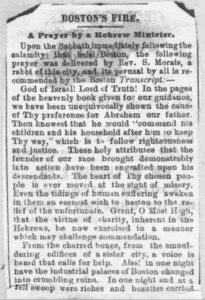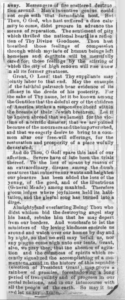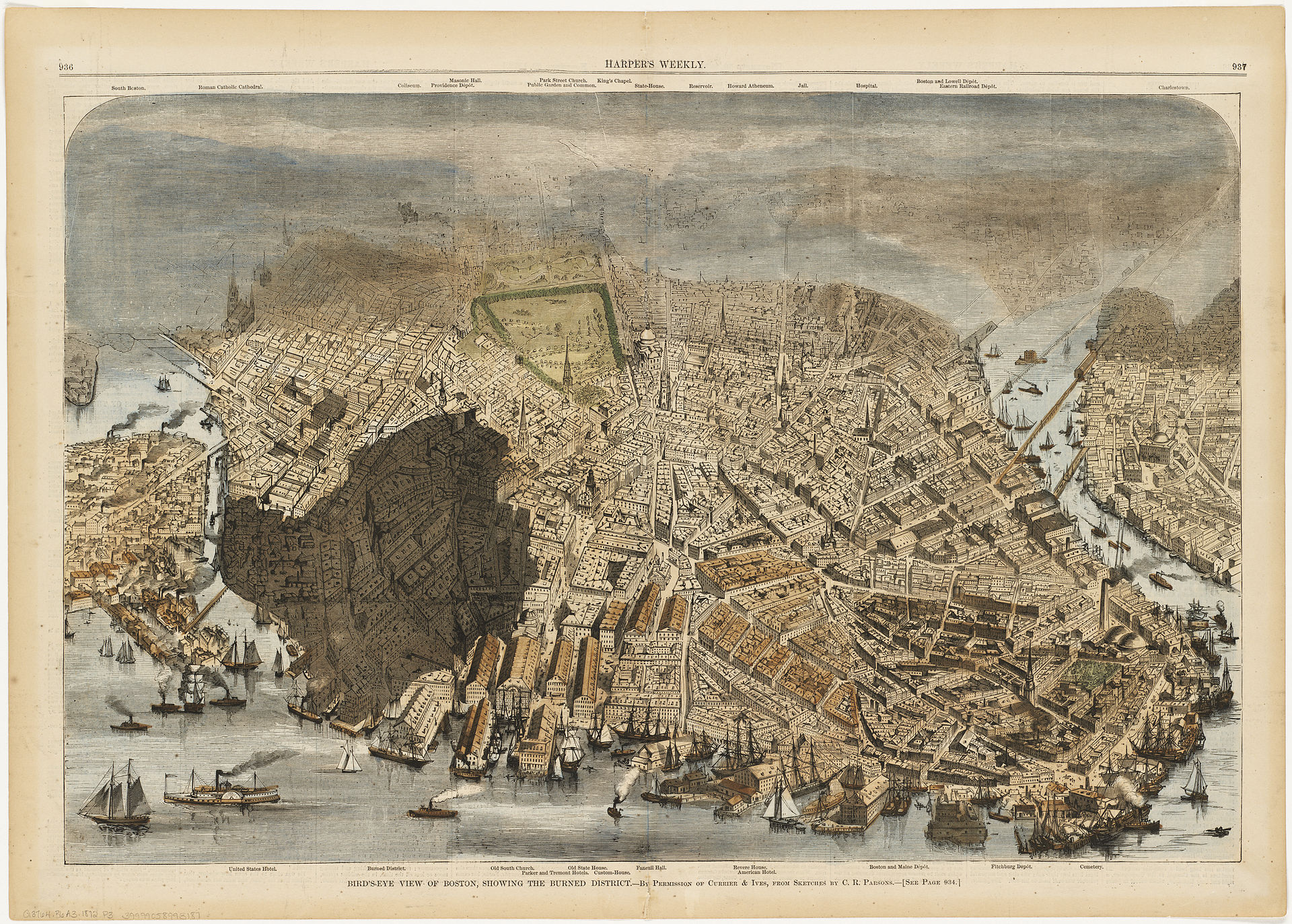| Contribute a translation | Source (English) |
|---|---|
|
|
God of Israel! Lord of Truth!
In the pages of the heavenly book given for our guidance, we have been unequivocally shown the cause of Thy preference for Abraham our father. Thou knowest that be would “command his children and his household after him to keep Thy way,” (Genesis 18:19) which is to follow righteousness and justice. These holy attributes that the founder of our race brought demonstrably into action have been engrafted upon his descendants. The heart of Thy chosen people is ever moved at the sight of misery. Even the tidings of human suffering awaken in them an earnest wish to hasten to the relief of the unfortunate. Grant, O Most High, that the virtue of charity, inherent in the Hebrews, be now exercised in a manner which may challenge commendation. |
|
|
From the charred bones,
from the smouldering edifices of a sister city, a voice is heard that calls for help. Alas! in one night have the industrial palaces of Boston changed into crumbling ruins. In one night and at a fell swoop were riches and beauties carried away. Messengers of fire scattered destruction around. Man’s inventive genius could not cope with that formidable host. But Thou, O God, who hast suffered a dire calamity to come, didst prepare in advance the means of reparation. The sentiment of pity which thrilled the national heart is a reflection of Thy Divine Goodness. Thou hast breathed those feelings of compassion through which myriads of human beings left homeless and destitute will be mercifully cared for; those feelings by the stirring of which the city of high renown will rise anew in all its former greatness. |
|
|
Grant, O Lord!
that Thy suppliants may jointly labor to that end. May the example of the faithful patriarch bear evidence of its efficacy in the deeds of his posterity. For the sake of Thy name, let it be known among the Gentiles that the doleful cry of the children of America strikes a responsive chord within the breasts of their Jewish brethren. Let it be known abroad that we lament for the victims of a terrific disaster; that we are pained because of the mourners and the impoverished, and that we eagerly desire to bring to a common altar our free-will offerings, for the restoration and prosperity of a place woefully devastated. |
|
|
And do Thou, O God!
spare this land of our affection. Severe have of late been the trials thereof. To the loss of means by reason of an extraordinary disease among the dumb creatures that subserve our wants and heighten our pleasure has been added the loss of the young, of the good, and of the illustrious[1] George Gordon Meade (December 31, 1815 – November 6, 1872) was a United States Army officer and civil engineer best known for decisively defeating Confederate General Robert E. Lee at the Battle of Gettysburg in the American Civil War. among mankind. Therefore gloom lodges where joyfulness held its habitation, and the gleeful song has turned into a dirge. |
|
|
Almighty and everlasting Being!
Thou who didst whilom bid the destroying angel stay his hand, rebuke him that he may depart from our borders. And vouchsafe to let the ministers of thy loving kindness encircle us around and watch over our homes by day and by night, so that no evil may befall us, nor any plague come nigh onto our tents. |
|
|
Grant, also, we pray thee,
that the absence of agitation and the calmness of spirits which recently signalized the accomplishing of a momentous event in the history of this republic[2] The election of Ulysses S. Grant, 18th President of the United States, for a second term in 1872. may prove a rainbow of promise, foreshadowing a long period of tranquillity and of progress in our social relations, and in our intercourse with all the people of the earth. So may it be and let us say— Amen. |
This prayer offered by Rabbi Sabato Morais in response to what became known as the Great Boston Fire of 1872, was recorded in an article in Philaedlphia’s Evening Telegraph, “Boston’s Fire. A Prayer by a Hebrew Minster,” reprinted from the Boston Transcript. It was preserved by Rabbi Morais in his ledger (p. 234, clipping 406), an archive of newsclippings recording material he contributed to the press, among other announcements. (Many thanks to the Library of the University of Pennsylvania for helping to make this resource accessible.)
Source(s)
Notes
| 1 | George Gordon Meade (December 31, 1815 – November 6, 1872) was a United States Army officer and civil engineer best known for decisively defeating Confederate General Robert E. Lee at the Battle of Gettysburg in the American Civil War. |
|---|---|
| 2 | The election of Ulysses S. Grant, 18th President of the United States, for a second term in 1872. |




